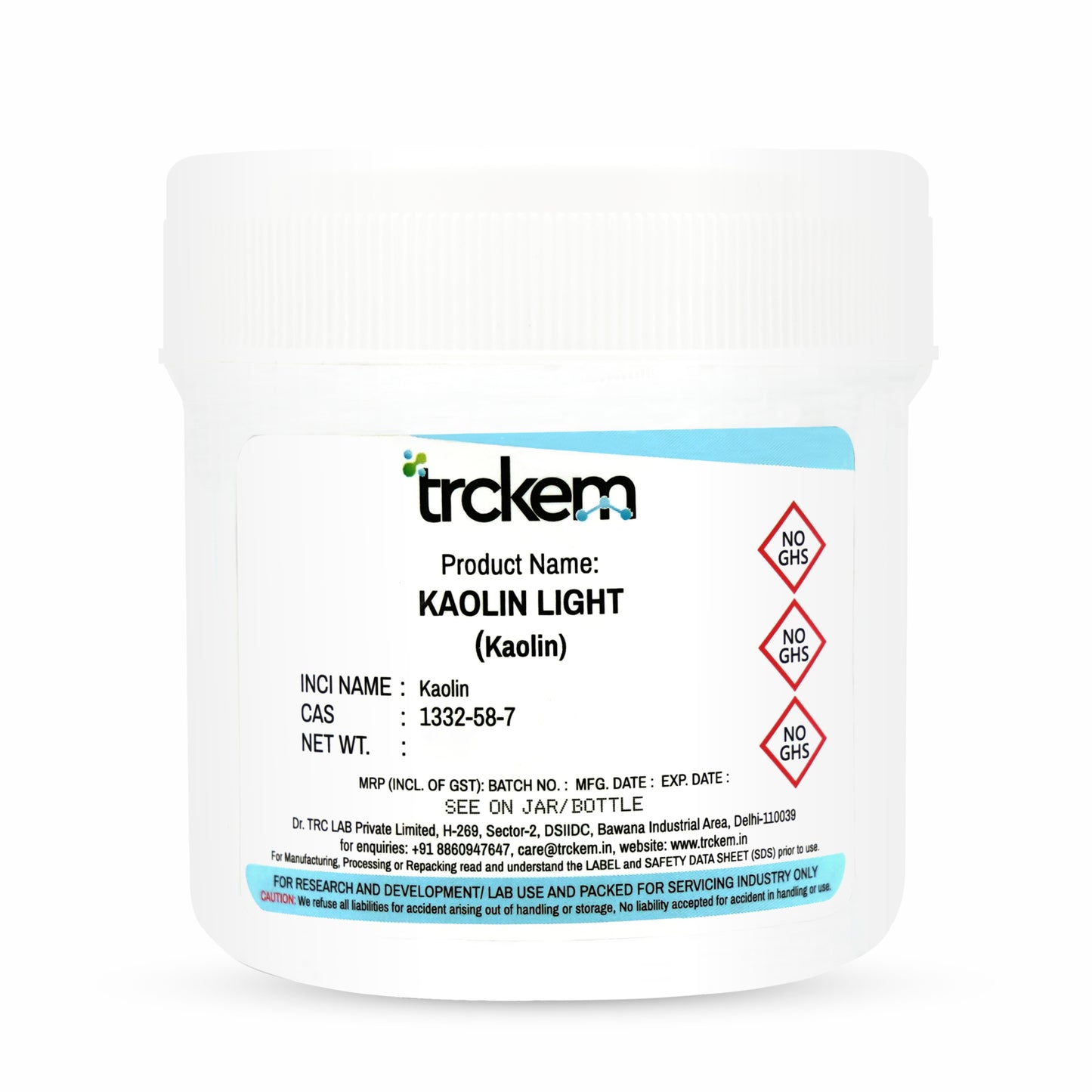
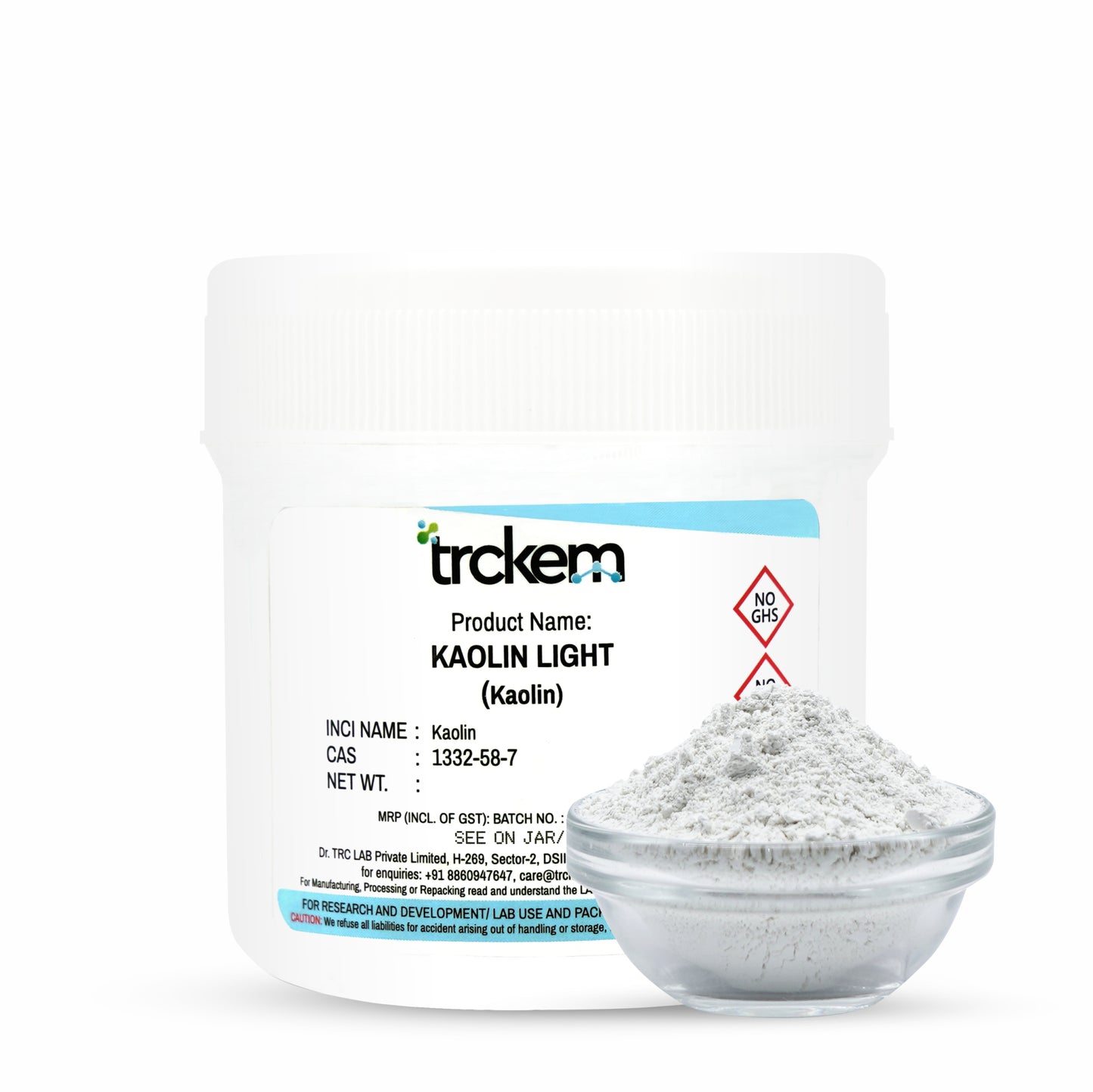
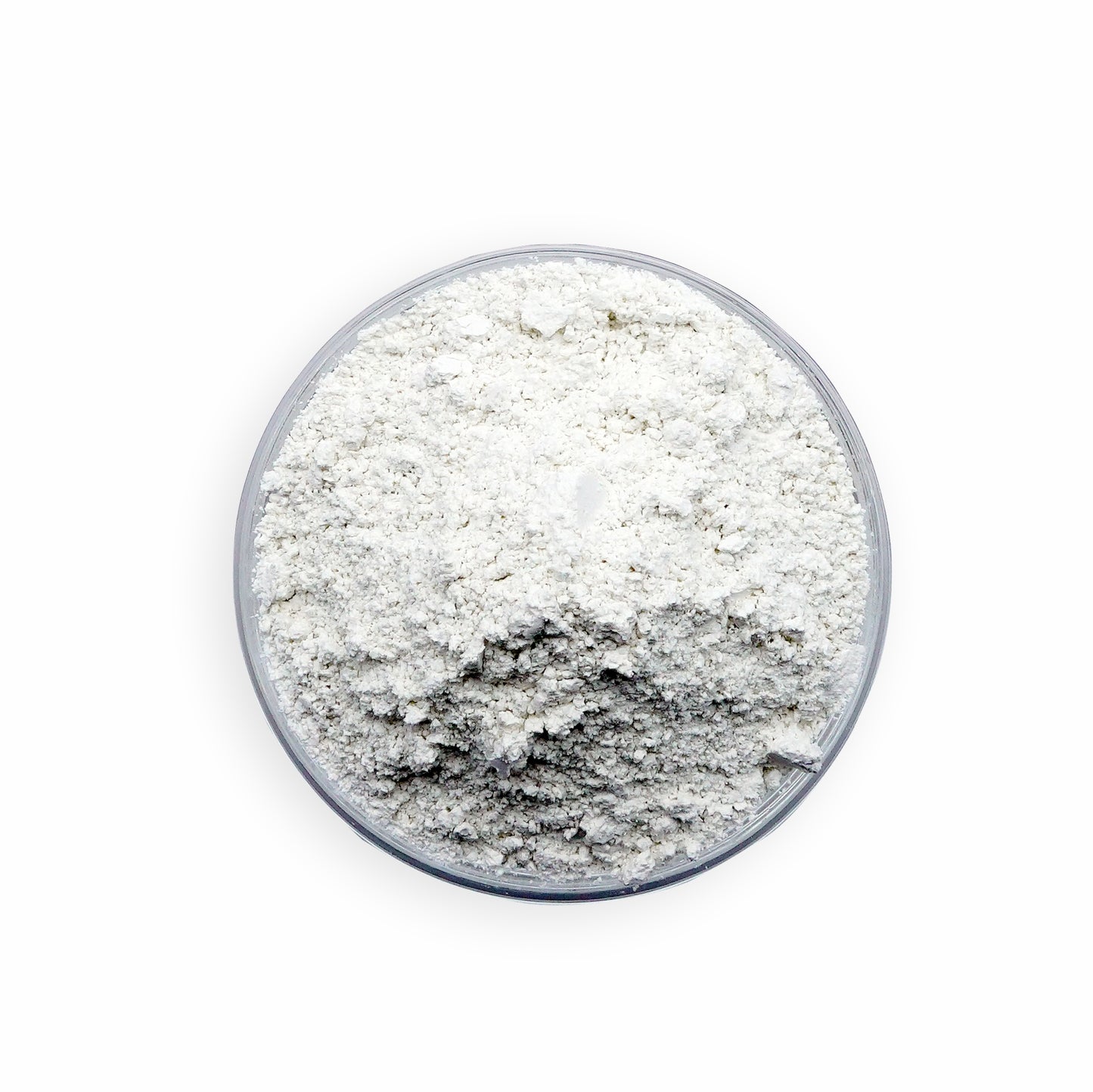
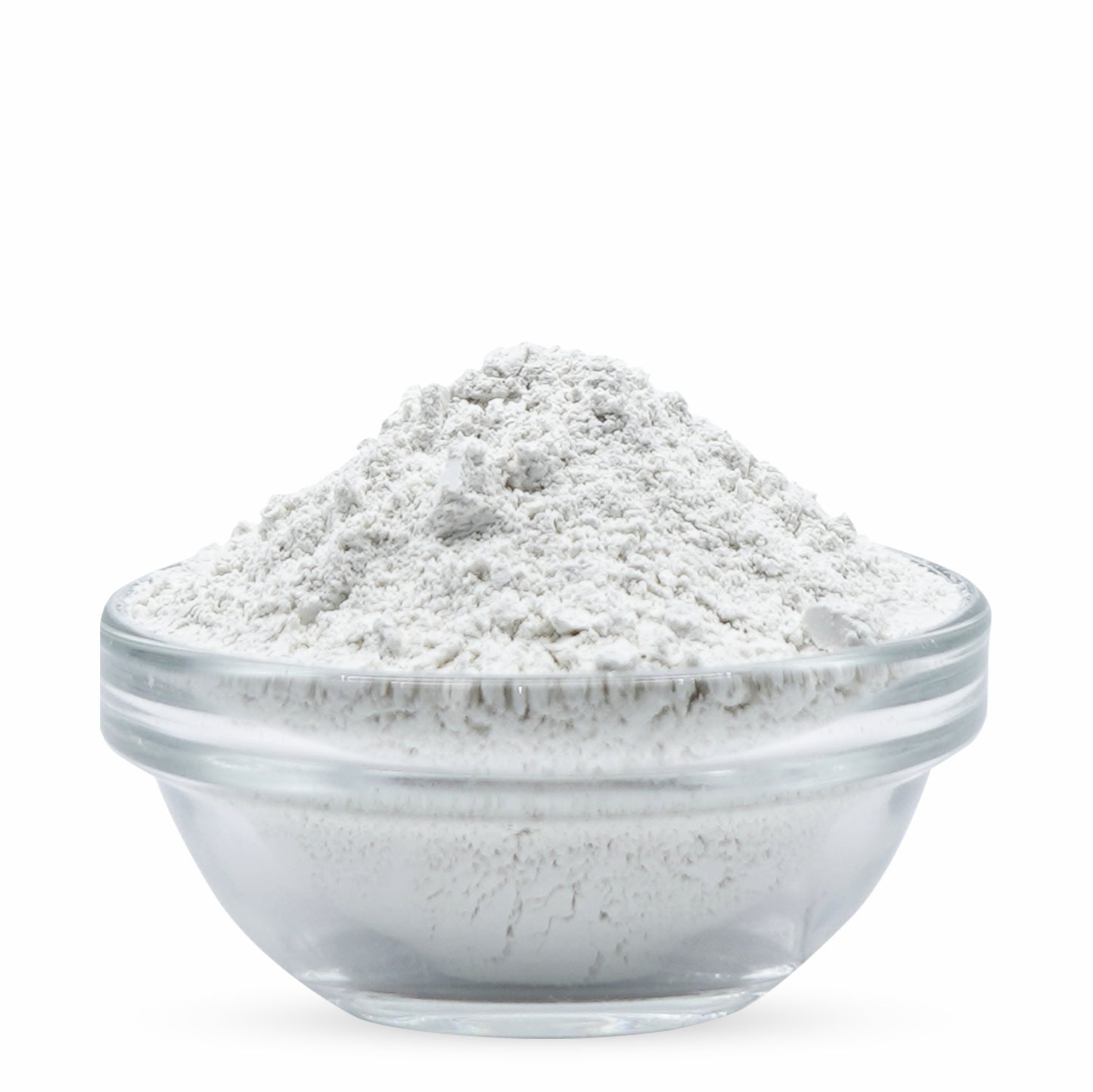
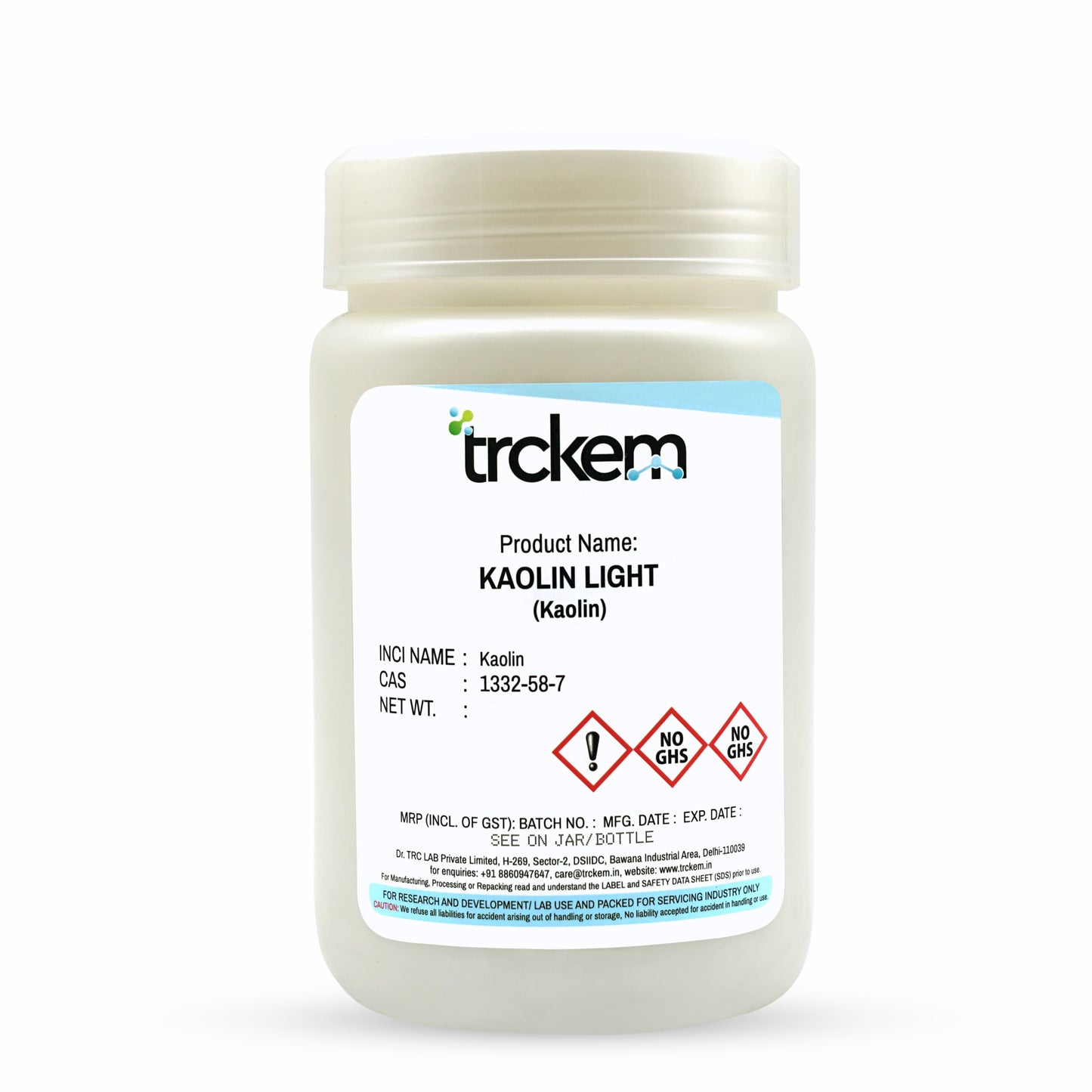
General Description
Kaolin Light, also known as White Clay or China Clay, is a fine, soft, and naturally occurring mineral primarily composed of kaolinite. Renowned for its gentle absorbent and soothing properties, it is widely used in skincare and cosmetic formulations. Available for bulk purchase, wholesale sales, and direct manufacture, Kaolin Light is a sought-after ingredient in the beauty and personal care industry.
Uses in the Cosmetics Industry
Kaolin Light is highly valued for its purifying, detoxifying, and oil-absorbing capabilities, making it an essential component in:
- Face masks and cleansers – Draws out impurities and reduces excess oil.
- Loose and pressed powders – Enhances product texture and provides a smooth finish.
- Soothing creams and lotions – Calms sensitive and irritated skin.
- Deodorants and dry shampoos – Absorbs sweat and oil for a fresh feel.
Leading beauty brands and cosmetic manufacturers prefer wholesale Kaolin Light for sale due to its natural, non-toxic, and skin-friendly properties, making it a staple in organic and clean beauty formulations.
Side Effects & Hazards
Kaolin Light is generally safe for topical use and well-tolerated by most skin types. However:
- Overuse can cause dryness, especially for individuals with naturally dry skin.
- Inhalation of fine Kaolin powder during handling or manufacturing may lead to respiratory irritation.
- To ensure safety, use protective gear when working with bulk or wholesale quantities.
Where to Buy Kaolin Light?
For businesses looking to buy Kaolin Light in bulk, many wholesale suppliers and manufacturers offer high-quality, cosmetic-grade Kaolin for sale. Whether you need it for skincare formulations, private labeling, or large-scale production, sourcing from trusted suppliers guarantees purity and compliance with industry standards.
CAS Number: 1332-58-7
INCI: Kaolin
Composition: Kaolin Light is mainly composed of kaolinite, a hydrated aluminum silicate mineral with the chemical formula Al2Si2O5(OH)4. It may alsocontain varying amounts of other minerals depending on its source.
Purity Grade: No purity grade applicable
Appearance: Kaolin Light is typically a fine, white to off-white powder with a soft texture.
Solubility: It is practicall insoluble in water and organic solvents, but it can disperse in water to form suspensions or colloidal solutions.
Preservation: Kaolin Light does not require special preservation methods. It should be stored in a cool, dry place away from moisture to prevent clumping.
Storage: Store in a closed container at a dry place at room temperature
Raw Material Source: Kaolin Light is sourced from naturally occurring deposits of kaolinite-rich clay minerals.
Manufacture: Kaolin Light is typically mined from kaolin deposits using open-pit mining methods. The mined clay is then processed to remove impurities, dried, and pulverized into a fine powder suitable for various applications.
Animal Testing: Not animal tested
GMO: GMO-free (does not contain plant-derived components)
Vegan: Does not contain animal-derived components
Proposition: KAOLIN LIGHT complies with relevant regulations and guidelines
Warning: Avoid contact with eyes. In case of contact, rinse thoroughly with water. Use appropriate protective equipment when handling. Keep out of reach of children.
THE STORY OF KAOLIN LIGHT

Kaolin Light: The Gentle Mineral Powder for Purifying & Mattifying Care
Kaolin Light is a highly purified, ultra-fine grade of kaolin clay known for its gentle absorbency and skin-soothing properties.
Lightweight and non-drying, it is ideal for face masks, mattifying powders, cleansers, soaps, and sensitive-skin formulations.
Its soft texture and mild nature make it one of the most versatile clays in cosmetic and personal-care applications.

Refined from Natural Kaolinite Mineral Deposits for Superior Purity
Kaolin Light is obtained from naturally occurring kaolinite deposits, processed through:
• Washing & beneficiation
• Sedimentation & purification
• Fine micronization
• Drying & sterilization
This advanced refining produces a soft, bright white, highly absorbent mineral powder suitable even for sensitive-skin formulations.
TRCkem supplies cosmetic-grade Kaolin Light with controlled particle size and purity.

Absorb. Purify. Soothe.
Kaolin Light offers multiple cosmetic benefits:
✅ Gently absorbs excess oil without over-drying
✅ Helps cleanse pores and remove impurities
✅ Provides a matte, soft-focus finish in makeup
✅ Soothes and calms sensitive or irritated skin
✅ Enhances texture in powders & masks
Used in: face masks, setting powders, dusting powders, soaps, scrubs, baby-care formulations, deodorants & detox cleansers.

Pure, Stable & Safe — Suitable Even for Delicate Skin Formulations
• Typical use level:
– 5–40% in face masks & powders
– 1–10% in cleansers & soaps
• Mix into dry phase or disperse into liquid phase with gentle agitation
• Compatible with surfactants, clays, oils & botanical extracts
• Non-irritating, non-abrasive & naturally hypoallergenic
• Store in cool, dry environment to prevent moisture clumping
• Ideal for sensitive-skin, baby-care & natural skincare formulations
Formulator’s Queries, We Answered
1. What is Light Kaolin?
Light Kaolin, also known as white clay or China clay, is a naturally occurring, fine, white powder primarily composed of the mineral kaolinite. It is renowned for its gentle properties, making it suitable for various applications in the personal care industry.
2. How is Light Kaolin used in personal care products?
In the personal care industry, Light Kaolin serves multiple functions:
Cleansers: Incorporated into facial cleansers and soaps, Light Kaolin helps absorb excess oil and impurities from the skin without stripping essential moisture.
ASTRRACHEMICALS.COM
Facial Masks: Utilized in masks to gently exfoliate and cleanse pores, promoting a clearer complexion.
Powdered Foundations: Added to powdered foundations and mineral makeup formulations, Light Kaolin provides a smooth, matte finish, absorbing excess oil and reducing shine.
3. What are the benefits of using Light Kaolin in personal care products?
Light Kaolin offers several advantages:
Gentle Cleansing: Effectively removes impurities without harsh effects, making it suitable for sensitive skin.
Oil Absorption: Helps control excess sebum production, reducing shine and preventing clogged pores.
Exfoliation: Provides mild exfoliation, aiding in the removal of dead skin cells and promoting a smoother skin texture.
Skin Soothing: Known for its calming properties, it can soothe irritated or inflamed skin.
4. Is Light Kaolin suitable for all skin types?
Yes, Light Kaolin is considered one of the most gentle clays and is suitable for all skin types, including sensitive skin. Its mild nature makes it an excellent choice for individuals seeking gentle skincare solutions.
5. What is the CAS number and INCI name of Light Kaolin?
CAS Number: 1332-58-7
INCI Name: Kaolin






